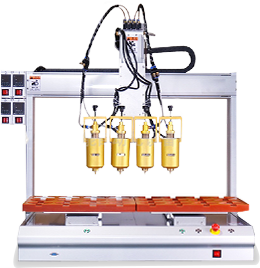

Automotive precision parts Metal transmission sleeves/bushing parts are indispensable core components in automotive power transmission and suspension systems, playing a key role in connection, support and buffering. The products are made of high-strength alloy steel, copper alloy or special composite materials, through precision casting, CNC machining and surface treatment processes. Its structure is mostly hollow tubular or annular, with a smooth inner hole that fits tightly with components such as the drive shaft and steering knuckle, and the outer contour is adapted to the installation space of the car chassis, engine compartment, etc., to ensure efficient transmission of power and motion.
Core advantages | Technical highlights | Application value |
High strength and wear resistance | High-strength steel containing alloy elements such as chromium and molybdenum is selected. After quenching and tempering, the surface hardness can reach HRC50-60; or self-lubricating copper alloy is used, and the friction coefficient is as low as 0.15 | Greatly improve the service life of parts, reduce the risk of transmission failure due to wear, suitable for high-load scenarios such as engines and gearboxes |
High precision adaptation | Dimensional tolerance is controlled within ±0.01mm, and cylindrical error is ≤0.005mm, ensuring precise matching with shaft and hole parts | Reduce transmission clearance, improve power transmission efficiency, reduce energy loss, and improve vehicle fuel economy |
Excellent shock absorption and noise reduction performance | Special structural design with elastic material coating can absorb more than 90% of high-frequency vibration; internal groove design optimizes lubricant distribution and reduces friction noise | Significantly improve driving comfort and meet the stringent requirements of high-end cars for quiet performance |
Strong corrosion resistance | Surface is nickel-plated, zinc-plated or Dacromet-treated, and the salt spray test time is over 1000 hours | Adapt to complex road conditions such as rain, snow, acid and alkali, and extend the service life of parts in harsh environments |
Lightweight design | Thin-wall structure and new alloy materials are used to reduce weight by 20%-30% compared with traditional parts | Help the lightweight of the car, reduce the energy consumption of the whole vehicle, and improve the handling performance |
Materials and Processes
.Material Selection
Alloy Steel Series: 42CrMo alloy steel has high strength and high toughness, suitable for high-load parts such as engines and transmission systems; 20CrMnTi carburized steel is carburized and quenched, with high surface hardness and good core toughness, suitable for parts that bear alternating loads.
Copper Alloy Series: Copper alloys such as aluminum bronze and tin bronze have good self-lubrication and wear resistance, and are often used in bushing parts of steering systems and suspension systems.
.Processing Technology
Precision cold extrusion and CNC turning and milling composite processing technology are used to ensure high-precision molding of complex structures; surface treatment processes include galvanizing, nickel plating, Dacromet coating and PTFE (polytetrafluoroethylene) self-lubricating coating to improve part protection and friction performance.
Item | Specifications | Description |
Inner diameter range | Φ10 - Φ100mm | Covering various automotive parts adaptation needs |
Wall thickness range | 1.5 - 8mm | Customized according to load strength |
Hardness range | HRC35 - HRC60 | Different materials correspond to different hardness standards |
Operating temperature | -40℃ - 150℃ | Meet the requirements of automobile use in all climate environments |
Load capacity | 500 - 10000N | Different models are suitable for different load conditions |
Application scenarios
.Engine system: used to connect the crankshaft and connecting rod, camshaft and valve tappet, to ensure efficient power output and reduce energy loss.
.Transmission system: adapted to drive shaft, shift fork and other components, to improve transmission stability and reduce shift shock.
.Suspension and steering system: installed on shock absorbers, lower arm, steering knuckle and other parts, effectively absorb road vibration, enhance vehicle control accuracy and driving safety.
.New energy vehicles: meet the high-precision matching requirements of motor rotor shaft, reducer gear shaft and other components, and help optimize the performance of new energy vehicles.
 Headquarters tel.
Headquarters tel. E-mail.
E-mail.